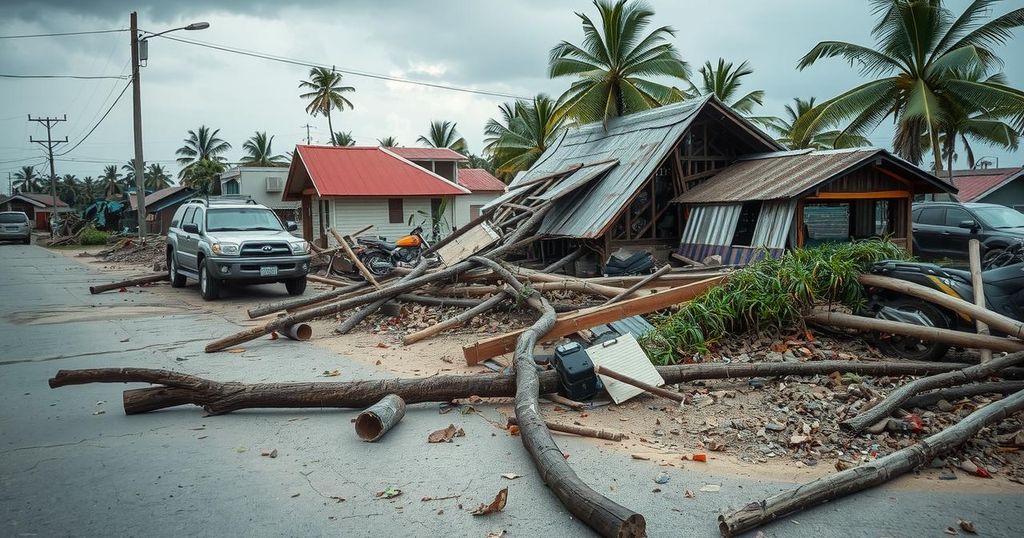World news
AC, ACACIO TEMBE, AFRICA, CAN, CANJAR AMADE, DEATH TOLL, DISASTER MANAGEMENT AGENCY, EMERGENCY RESPONSE, LUISA MEQUE, MALAWI, MAYOTTE, MECUFI, MOZAMBIQUE, NATIONAL INSTITUTE FOR DISASTER RISK MANAGEMENT AND REDUCTION, NATIONAL WEATHER AGENCY, NATURAL DISASTER, NATURAL DISASTERS, NIASSA, PEMBA, VOA, WHATSAPP
Ethan Kim
0 Comments
Cyclone Chido Causes Widespread Destruction in Mozambique
Cyclone Chido has resulted in at least 34 fatalities and extensive damage in Mozambique, affecting approximately 2.5 million people, particularly in Cabo Delgado province. The cyclone’s severe impact raises concerns about climate change effects in the region, indicating potential future disasters due to recurrent extreme weather events.
Cyclone Chido has tragically claimed the lives of at least 34 individuals and left 43 injured following its devastating impact on Mozambique’s northern provinces this past Sunday and Monday. As rescue teams continue their operations through the debris, Luisa Meque, Chair of Mozambique’s National Institute for Disaster Risk Management and Reduction, indicated that the reported numbers are preliminary. Approximately 2.5 million people have been affected by this disaster, particularly in the Cabo Delgado province, where the cyclone caused near-total destruction, rendering a significant number of homes uninhabitable.
The cyclone made landfall in Mecufi, leading to catastrophic devastation with all homes damaged. Witnesses like Canjar Amade recounted harrowing experiences, describing how the storm dismantled his home and left him vulnerable through the night. Meteorologist Acacio Tembe has warned that the provinces of Niassa and Cabo Delgado, along with other regions, are still experiencing the cyclone’s residual effects, including heavy rain and strong winds. After impacting Malawi and Mayotte, Cyclone Chido is expected to dissipate near Zimbabwe by the end of Tuesday.
Mozambique, which is one of the countries most severely affected by climate change, faces recurrent challenges during the rainy season from October to April, including flooding and tropical cyclones. Experts have predicted an increased incidence of severe weather events, particularly with a potential La Nina effect anticipated in southern Africa in early 2025, signaling that Mozambique may continue to suffer from intense rainfall and flooding in the years ahead.
The impact of Cyclone Chido is a stark reminder of Mozambique’s vulnerability to natural disasters exacerbated by climate change. Renowned for its susceptibility to severe weather during the rainy season, Mozambique has historically faced challenges such as flooding and tropical cyclones. These environmental changes are projected to intensify, especially with the looming influence of the La Nina effect, indicating future weather patterns may result in even more destructive conditions.
In summary, Cyclone Chido has inflicted significant humanitarian damage in Mozambique, with a reported death toll of 34 and injuries to 43 individuals. The cyclone’s devastation has left an estimated 2.5 million people affected, primarily in Cabo Delgado province, which experienced near-total destruction. As Mozambique grapples with the reality of climate change, the frequency and severity of such natural disasters are expected to rise, prompting urgent attention to disaster management and climate resilience.
Original Source: www.voanews.com




Post Comment